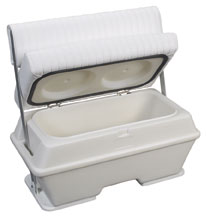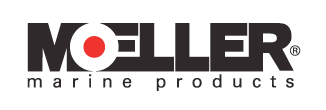OEM Downloads
Cooler/Livewell Innovations
New Contoured & Thermoformed Parts
EPA/CARB
Technical Support
Certifications
All Seats Brochure
Ethanol Guidelines
Cooler/Livewell Innovations

Moeller brings OEM’s and authorized distributors the finest line of insulated coolers and ice chests. Moeller OEM select products can give a boatbuilder the finish and color of fiberglass without the fiberglass chipping and cracking. Click here to see five available colors now offered!
New Contoured & Thermoformed Parts

Save money with Moeller Contoured Thermoformed parts. Click here to see how!
EPA/CARB
EPA regulations aimed at reducing fuel spillage and passive fuel leakage from watercraft have become effective. Moeller Marine Products provides this summary to you for informational purposes – this is not legal advice, and you should independently review any and all laws and regulations that you believe might apply to your products and operations.Click here to view our EPA Postcard.Technical Support
Visit our Customer Support page.Certifications
COC Certifications
Click below to view the United States Environmental Protection Agency Certificate of Conformity with the Clean Air Act of 1990:
2014 EPA COC for Primer Bulbs page 1
2013 EPA COC for Fuel Tanks page 1 page 2
2011-12 EPA COC for Fuel Lines page 1 page 2
CARB EO for Portable Fuel Tanks
CARB EO for Primer Bulbs
CARB EO for Fuel Lines
CE Certifications
Click below to view the certificates
200HPI
220HPI
235HPI
250HPI
265HPI
275HPI
285HPI
300HPI
Gas Walker
Gas Walker Competent Authority Approval
Scepter Certificates
CSCPPMDRNSTR-001
CSCPPTANK001-002
SCEPTER_TANK
All Seats Brochure
Click Here to download the All Seat Brochure.
Ethanol Guidelines
The EPA is responsible for setting Federal Guidelines that regulate the content in engine fuels. WIth a governmental push for blended fuels and bio-fuel development from renewable sources, ethanol has gained the energy spotlight as a fuel additive solution.Engine fuel require a certain octane rating in order to prevent the premature ignition that causes damage in engine knocking. Gasoline alon has a tendency to ignite prematurely during engine compression, which is why additives with a high octane rating must be blended with it.
Ethanol is a common additive to blend the fuels with, and while ethanol ma not pose the environmental hazards of other gas additives, the chemical properties of ethanol have the potential to cause severe damage to engine systems.
Click here to find out more information regarding the potential hazards and warnings regarding the use of ethanol.
